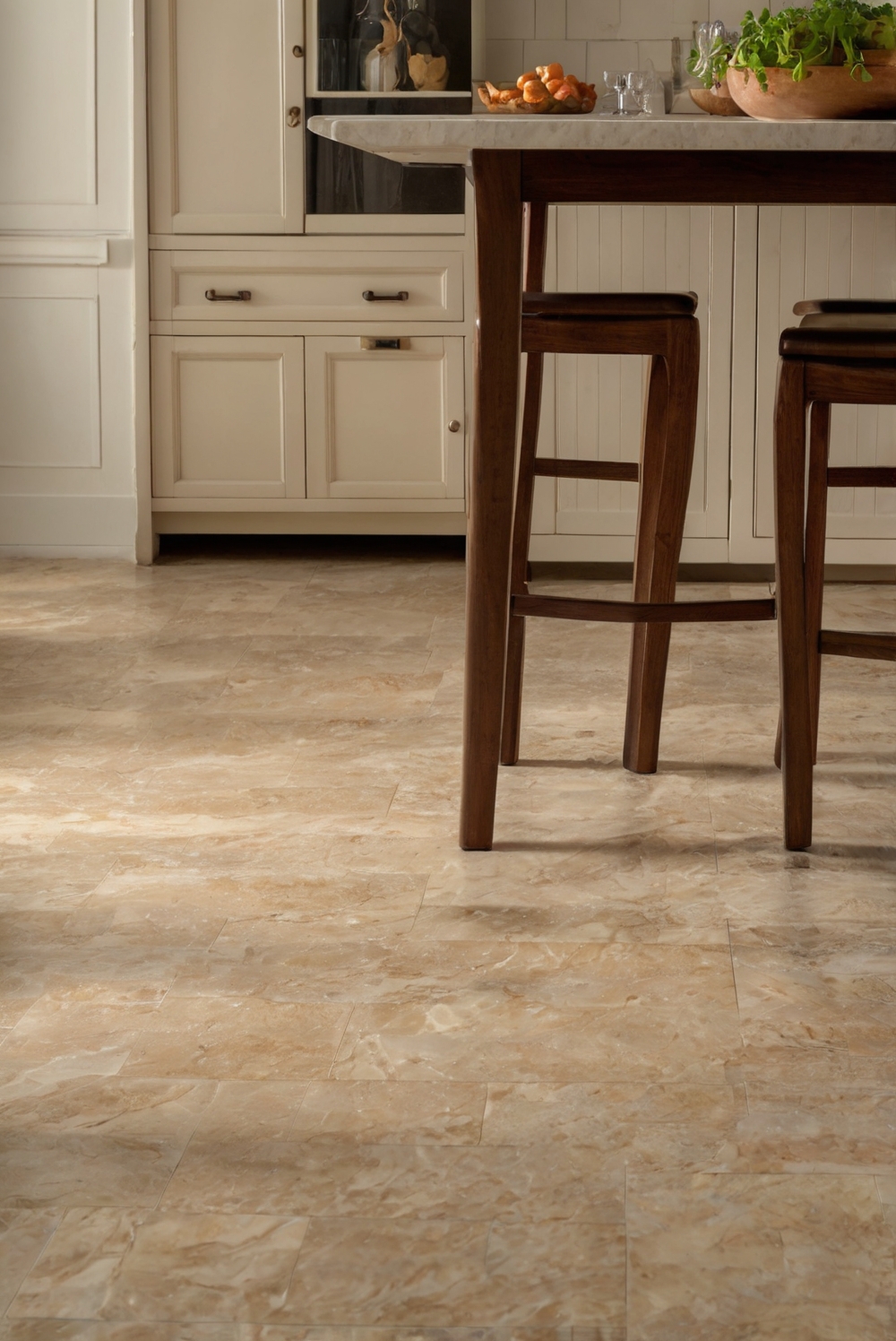Discover the best heat-resistant kitchen flooring materials for your interior design projects. Explore durability and style in everyday interior designer routines.
Which kitchen flooring materials are heat-resistant?
**Porcelain Tiles:** Porcelain tiles are highly heat-resistant and durable, making them an excellent choice for kitchen flooring. They can withstand high temperatures without warping or discoloration.
**Ceramic Tiles:** Ceramic tiles are another heat-resistant option for kitchen floors. They are easy to clean and maintain, making them a popular choice for busy kitchen spaces.
**Natural Stone:** Some natural stone materials such as granite and slate are heat-resistant and can add a luxurious touch to your kitchen. However, it’s important to seal them properly to protect against heat damage.
**Cork:** Cork flooring is also heat-resistant and provides a soft, comfortable surface to walk on. It’s eco-friendly and a good option for homeowners looking for a sustainable flooring choice.
It’s essential to choose the right flooring material based on your cooking habits and kitchen layout to ensure durability and longevity. Consider factors like spillage, cleaning ease, and maintenance requirements when selecting a heat-resistant flooring option for your kitchen.
Which kitchen flooring materials are heat-resistant?
When it comes to kitchen flooring, heat resistance is a crucial factor to consider. Here are some flooring materials that are known for their heat resistance:
Tiles:
One of the most popular choices for heat-resistant kitchen flooring is tiles. Ceramic and porcelain tiles are excellent options as they can withstand high temperatures without getting damaged. They are also easy to clean and maintain, making them ideal for kitchens.
Natural Stone:
Another heat-resistant option for kitchen flooring is natural stone, such as granite or slate. These materials are not only durable but also heat-resistant, making them perfect for areas near the stove or oven.
Engineered Wood:
Engineered wood flooring is also known for its heat resistance. It is made by combining multiple layers of wood with a top layer of hardwood veneer, making it more stable and less susceptible to heat damage compared to solid wood flooring.
Other considerations for heat-resistant kitchen flooring:
Underfloor Heating:
If you want to enhance the heat resistance of your kitchen flooring, you can consider installing underfloor heating systems. These systems can help distribute heat evenly across the floor, making it more comfortable and warm to walk on.
Proper Installation:
Regardless of the flooring material you choose, proper installation is crucial for ensuring its heat resistance. Make sure to hire a professional installer who has experience working with heat-resistant materials to avoid any issues in the future.

